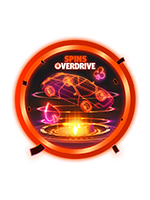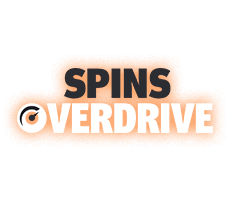How to play
Poker tells: tips to help read your opponents' hand strength
A tell, in the poker sense of the word, is a change in a player's behaviour, demeanour, or body language that someone uses when assessing the possible strength of an opponent's holding. Some tells are obvious, but others are far more subtle and are only picked up by the most observant players. Furthermore, some skilled, tricky players attempt to fake a tell hoping their opponent responds to it.
Tells only become reliable when they occur consistently in similar scenarios. For example, a player that scratched the side of their head before putting in a significant raise and then showed down a straight would likely have had an itch if they scratched their head again in another hand but folded their hand or showdown a weak hand. Your first skill is picking up on a potential tell. The second part is ensuring that the tell is reliable because incorrect information is worse than having no information.
Common poker tells
It should be evident that physical poker tells only appear in a live poker setting because you are sitting face-to-face with your opponents. Online poker players also give off tells, but these tend to revolve around the speed of play, the number of chips they bet, and betting patterns.
"Weak means strong, and strong means weak" is often an underlying rule to many of the tells you are about to read about. Players with solid hands wish to appear weaker, so they win more chips. Conversely, weak or bluffing players try to make it look like their hand is much stronger than it is as they attempt to force a fold and win the pot uncontested. Of course, seasoned players know this and will often flip it on its head; it is up to you to figure this out!
Eyes, hands, and pulses
Live poker players wear sunglasses for a multitude of reasons. Being able to look at an opponent without them knowing is one of the most common reasons. However, wearing sunglasses also prevents anyone from seeing where they are looking or the involuntary widening of the pupils when they see they have a strong hand.
If a player looks down at a strong hand preflop, such as pocket kings or aces, or flop a set, and the pot is growing larger, their pupils can dilate briefly. It is impossible to stop this because it is the human body's reaction to something pleasurable. A shot of adrenaline and endorphins dilates pupils before returning to normal soon after.
You may find that a player usually avoids eye contact but suddenly stare intensely at your or the community cards, or vice-versa. Is this behaviour out of the norm for this player? If so, it could be a tell.
Trembling or shaking hands is another tell that is difficult to prevent. The problem is shaky hands usually mean your opponent has a very strong or weak hand. They are either ridiculously excited to be betting or terrified of being called and having to show their bluff; we never said reading tells was easy! The unsteady hands are usually caused by a shot of adrenaline triggered by the human body's "fight-or-flight response."
Along the same lines of dilating pupils and shaking hands are strong pulses, particularly in the neck. It is not a coincidence that some live poker players wear scarves at the tables. Yes, casinos can be notoriously cold, chilly places, but wearing a scarf stops anyone from seeing the bulging pulse in their neck when their heart rate goes through the roof.
Timing tells
Timing tells are common in both live and online poker, but especially in the online world; look out for these when playing cash games and tournaments online at PartyPoker. As most tells, timing tells can be faked to give opponents a false reading, but for the most part, the following timing tells will be reliable.
An instant check is almost always a sign of weakness because the player has not thought about anything other than checking. However, an instant check followed by a check-raise often indicated a strong hand. The initial quick check was to lure someone in to bet, and now the check-raise is punishing them for taking the bait.
A lengthy or longer-than-usual pause before checking is also a sign of weakness. Players pause for a while, pretending to be considering how much to bet, but then they can't settle on a figure, so check.
Fast bets and raises indicate weakness for the most part, mainly if the bet is for the minimum or is small or the raise amount is small. A player making this move has not given much thought to pot odds. It is almost like they are using aggression to try and push you out of the hand.
Likewise, longer than usual pauses followed by a bet or a raise should be initially treated as being strong. The long delay is designed to make you think your opponent is weaker than they are because they can't decide what action to take. The fact they settle on betting or raising after the long wait speaks volumes.
It's good to talk
While many poker players teach themselves not to give off physical poker tells at the table, training your mouth to behave is another tier of skill entirely! Some players are experts in so-called speech play and can often talk an opponent into calling or folding, seemingly at will.
There is a lot of psychology linked to what humans say in different situations; some of it is complex, but a lot of it is just common sense when you think about it. For example, a player that makes a significant bet but follows it up with, "I'm on a draw here", is almost certainly not on a draw. Why? Because why on Earth would you tell your opponent you did not have a made hand? Also, someone that is bluffing generally doesn't want to risk an opponent calling them.
Furthermore, a player that moves all-in after declaring that they do not think you have anything is trying to convey that they do not have a strong hand, which means they likely do! A similar scenario is when your opponent says to you, "I'm glad you didn't snap call", says on the surface that they have a strong hand but not the nuts. Would someone bluffing let you know this information?
Another common speech play is goading someone into calling or folding. Examples include daring someone to call you, asking if they will allow you to bluff them, or stating that they know you will fold. Think about what they are saying and why they are saying it.
How to avoid giving off poker tells
Practice, practice, and more practice is what you need to stop giving off poker tells. You will naturally relax as you gain experience, make a few daring bluffs, or find yourself with the nuts in a big pot.
Try to be stoic in how you sit and act at the tables. Always follow the same patterns regardless if you are bluffing or value betting. For example, you may want to always look at the same spot on the table and always put your chips into the pot the exact same way. Also, never get involved in speech play because you risk giving away more information than you can imagine if the person chatting is skilled at reading what words mean. Basically, do not act in a manner that is different from any other hand you play. Remaining constant makes it next to impossible for anyone to gain any information from you.

